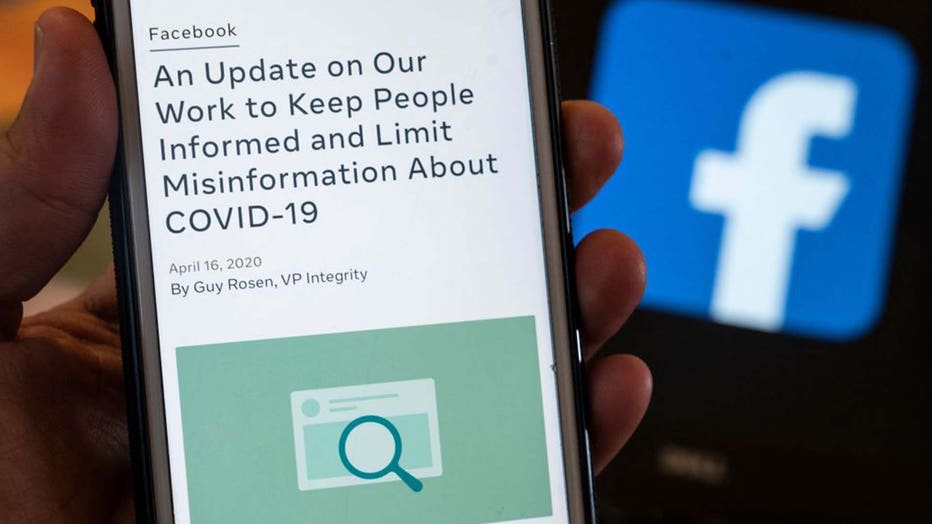3 medical boards support action against doctors who spread COVID-19 misinformation
The American Board of Family Medicine (ABFM), American Board of Internal Medicine (ABIM) and the American Board of Pediatrics (ABP) issued a joint statement in support of the Federation of State Medical Boards’ (FSMB) efforts to combat COVID-19 misinformation being disseminated by licensed physicians, according to a joint statement released on Sept. 9.
The FSMB released a statement on July 29 which stated that any physicians who create and spread COVID-19 misinformation are subject to disciplinary action by state medical boards, which can lead to suspension or revocation of the physician's medical license.
The ABFM, ABIM and ABP announced their support of the discipline of any physician who spreads misinformation about the novel coronavirus, saying the action "contradicts physicians’ ethical and professional responsibilities," according to the joint statement.
"We also want all physicians certified by our Boards to know that such unethical or unprofessional conduct may prompt their respective Board to take action that could put their certification at risk," the statement continued.

FILE - In this photo illustration, a smartphone screen displays a new policy on COVID-19 misinformation.
The three medical board associations also noted that the evidence of efficacy among COVID-19 vaccines is "overwhelming" and that they are "particularly concerned about physicians who use their authority to denigrate vaccination at a time when vaccines continue to demonstrate excellent effectiveness against severe illness, hospitalization and death," according to the statement.
"We all look to board-certified physicians to provide outstanding care and guidance; providing misinformation about a lethal disease is unethical, unprofessional and dangerous," according to the statement.
The release of the joint statement came amid an onslaught of COVID-19 misinformation, leading to the widespread use of unproven treatments such as ivermectin as well as general vaccine hesitancy.
Federal health experts are sounding the alarm on social media platforms such as Facebook and Twitter where misinformation can spread quickly. In July, the U.S. surgeon general declared misinformation a public health threat.
RELATED: Health experts call for 'immediate end' to use of parasite drug ivermectin for COVID-19
"We need an all-of-society approach to fight misinformation. And that’s why this advisory that I issued today has recommendations for everyone," U.S. Surgeon General Vivek Murthy said during a news conference in July.
Murthy asked technology companies to monitor misinformation more closely.
"We ask people to raise the bar for sharing health information by checking sources before they share, to ensure that information is backed by credible, scientific sources," Murthy added. "I think in a moment like this when we see misinformation literally costing us our loved ones, costing us lives, we can be more accountable and responsible for the information that we share," Murthy continued.
Videos of local government meetings have emerged as the latest vector of COVID-19 misinformation, broadcasting misleading claims about masks and vaccines to millions and creating new challenges for internet platforms trying to balance the potential harm against the need for government openness.
RELATED: Rising COVID-19 cases, deaths wipe out months of pandemic progress
One video that went viral features a local physician who made several misleading claims about COVID-19 while addressing the Mount Vernon Community School Corporation in Fortville, Indiana, on Aug. 6. In his six-minute remarks, Dr. Dan Stock tells the board that masks don’t work, vaccines don’t prevent infection and state and federal health officials don’t follow the science.
The video amassed tens of millions of online views and prompted the Indiana State Department of Health to push back.
"Here comes a doctor in suspenders who goes in front of the school board and basically says what some people are thinking: The masks are B.S., vaccines don’t work and the CDC is lying — it can be very compelling to laypeople," said Dr. Zubin Damania, a California physician who received so many messages about the Indiana clip that he created his own video debunking Stock’s claims.
YouTube removed several similar videos of local government meetings in North Carolina, Missouri, Kansas and Washington state. In Bellingham, Washington, officials responded by temporarily suspending public comment sessions.
RELATED: Study: 80% of COVID-19 patients suffer 1 or more long-term effects
The deluge of false claims about the virus has challenged other platforms too. Twitter and Facebook each have their own policies on COVID-19 misinformation, and say that like YouTube they attach labels to misleading content and remove the worst of it.
Public comment sessions preceding local government meetings have long been known for sometimes colorful remarks from local residents. But before the internet, if someone were to drone on about fluoride in the drinking water, for instance, their comments weren’t likely to become national news.
Now, thanks to the internet and social media, the misleading musings of a local doctor speaking before a school board can compete for attention with the recommendations of the U.S. Centers for Disease Control and Prevention.
The Associated Press and Austin Williams contributed to this report. This story was reported out of Los Angeles.

